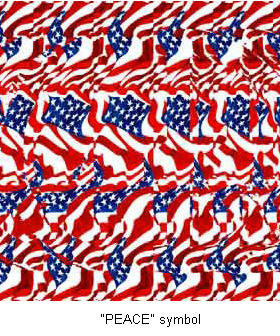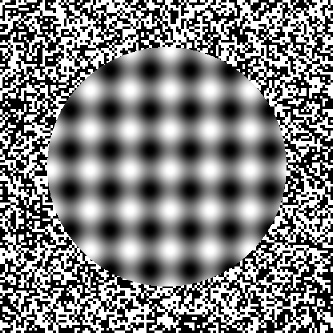
RP If you look in the mirror and this is what you see great things are ahead – or perhaps you should re-boot your life? – Lol!
WikiPedia – A dragonfly in its final moult, undergoing metamorphosis from its nymph form to an adult.
-0-
HAVE YOU SHIFTED? – ‘SOCIETIES & YOU & ME: BIG CHANGE, LITTLE CHANGE’ session 12 25/03/15
“Breath is the bridge which connects life to consciousness, which unites your body to your thoughts. Whenever your mind becomes scattered, use your breath as the means to take hold of your mind again.” ― Zen Master Thích Nhất Hạnh. He also says; “Breath is my anchor.” BREATH MANTRA – IN: ‘breath…’ OUT: is my anchor
QUESTIONS: Q 1. On your spiritual or inter-spiritual journey have you undergone one big life-changing event or a series of smaller ones – i.e. little steps of insight or one big ‘shazam’ experience? Q 2. Is the history of humankind a mirror of the inner struggles of the individual’s spiritual journey? What are the successes so far – e.g the establishment of the Red Cross (cf The Good Samariton?) Q.3 Is it useful to see so-called paradigm shifts in as the social co-equivalent of what happens to us as individuals?
A) Ulrich Leonard Tölle became Eckhart Tolle – One night in 1977, at the age of 29, after having suffered from long periods of suicidal depression, Tolle says he experienced an “inner transformation.” That night he awakened from his sleep, suffering from feelings of depression that were “almost unbearable,” but then experienced a life-changing epiphany.
Recounting the experience, Tolle says; “I couldn’t live with myself any longer. And in this a question arose without an answer: who is the ‘I’ that cannot live with the self? What is the self? I felt drawn into a void! I didn’t know at the time that what really happened was the mind-made self, with its heaviness, its problems, that lives between the unsatisfying past and the fearful future, collapsed. It dissolved. The next morning I woke up and everything was so peaceful. The peace was there because there was no self. Just a sense of presence or “beingness,” just observing and watching.” (remember his zen quote ‘No self – no problem!?
Tolle recalls going out for a walk in London the next morning, and finding that “everything was miraculous, deeply peaceful. Even the traffic.” The feeling continued, and he began to feel a strong underlying sense of peace in any situation.[7]
Tolle stopped studying for his doctorate, and for a period of about two years after this he spent much of his time sitting, “in a state of deep bliss,” on park benches in Russell Square Central London, “watching the world go by.” He stayed with friends, in a Buddhist monastery or otherwise slept rough on Hampstead Heath.
His family thought him “irresponsible, even insane.” Tolle changed his first name from Ulrich to Eckhart; by some reports this was in homage to the German philosopher and mystic, Meister Eckhart.
A 2012 interview article states that he saw the name Eckhart on one of a pile of books in a dream, and knew he had written the book; soon after in real life he ran into a psychic friend who called him Eckhart out of nowhere, so Tolle changed his name. SOURCE http://en.wikipedia.org/wiki/Eckhart_Tolle
B) SAUL BECAME ST PAUL – As he neared Damascus on his journey, suddenly a light from heaven flashed around him. He fell to the ground and heard a voice say to him, “Saul, Saul, why do you persecute me?”
“Who are you, Lord?” Saul asked.
“I am Jesus, whom you are persecuting,” he replied. “Now get up and go into the city, and you will be told what you must do.”
The men traveling with Saul stood there speechless; they heard the sound but did not see anyone. Saul got up from the ground, but when he opened his eyes he could see nothing. So they led him by the hand into Damascus. For three days he was blind, and did not eat or drink anything. —Acts 9:3–9, NIV
C) PARADIGM SHIFTS in society – All disciplines have assumptions. Empirical sciences are data-based and assume that theories can be formulated to explain that data. Empirical sciences also assume that data is neutral – which it is not. A paradigm is a result of these assumptions- it is the existing beliefs, practices, and general perspective of a discipline. The paradigm of a discipline is expressed through various products of the discipline such as laws, theories, generalizations, methods of collecting data, and methods of evaluating data.
Paradigm Shift – Findings that do not fit within the existing paradigm may cause a paradigm shift may occur. This happened with Einstein’s theory of relativity. It was previously believed that time was constant throughout the universe. Einstein showed that it was not, so the paradigm shifted- now the belief is that time is a dimension like space.
Some of the “classical cases” of Kuhnian paradigm shifts in science are:
1543 – The transition in cosmology from a Ptolemaic cosmology to a Copernican one.
1687 – The transition in mechanics from Aristotelian mechanics to classical mechanics.
The acceptance of the theory of biogenesis, that all life comes from life, as opposed to the theory of spontaneous generation – began in the 17th century & was not complete until the 19thC with Louis Pasteur.
1920 – The transition between the worldview of Newtonian physics and the Einsteinian relativistic worldview.
DATE ? – The development of absolute dating. (Techniques include tree rings in timbers, radiocarbon dating)
1965 – The acceptance of plate tectonics as the explanation for large-scale geologic changes.
In social sciences – In Kuhn’s view, the existence of a single reigning paradigm is characteristic of the sciences, while philosophy and much of social science were characterized by a “tradition of claims, counterclaims, and debates over fundamentals.”[5]Others have applied Kuhn’s concept of paradigm shift to the social sciences.
EXAMPLE; The movement, known as the Cognitive revolution, away from Behaviourist approaches to psychological study and the acceptance of cognition as central to studying human behaviour.
RP Many think the term is frequently inappropriately used or mis-applied – or even too troublesome.
D) WHAT I WAS became WHAT I NOW AM – WHAT YOU WERE became WHAT YOU NOW ARE
Q. 4 If you, within, have had a paradigm shift from what was the old & the new inner paradigm? Q. 5 How important is self-knowledge? Which self is it that we come to know – small self or big Self? Or both? Do we hide from it? Is it thrust upon us? Q. 6 What kind of knowing flows from gnostic or irfan-ic experiences that enable self-knowing? Q. 7 Is the ‘no self’ the higher or lower self – or is there only one self? -0-
TAGS: self-knowing, Kuhn, mystical experience, life-change, knowing, gnosis, irfan, paradigm shifts, Pauline conversion, spiritual journey, self-knowledge, change………..


 (source
(source
